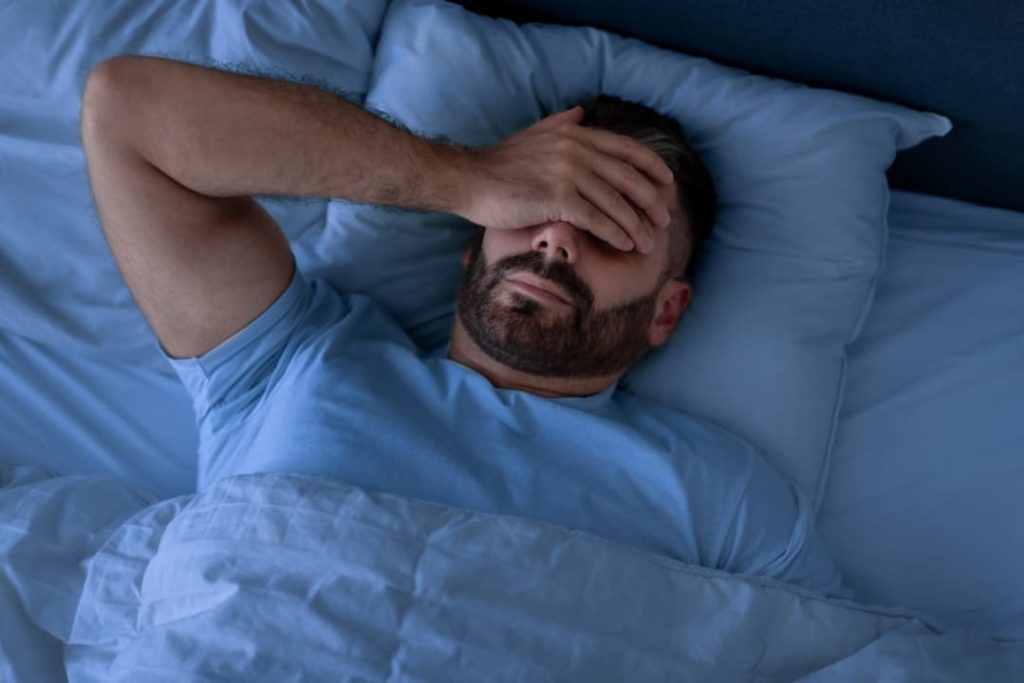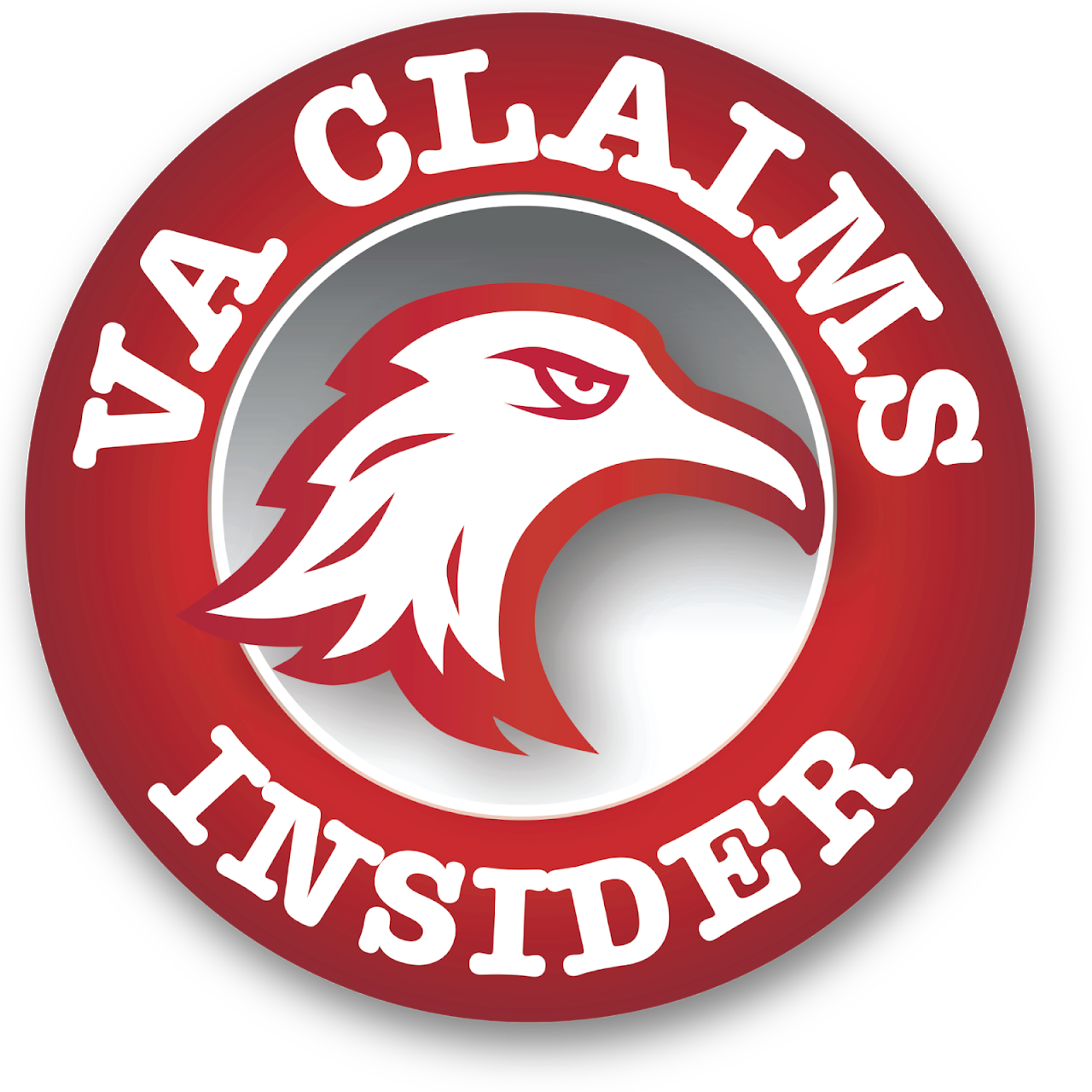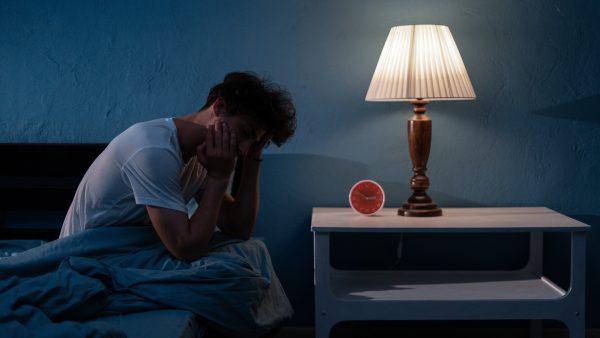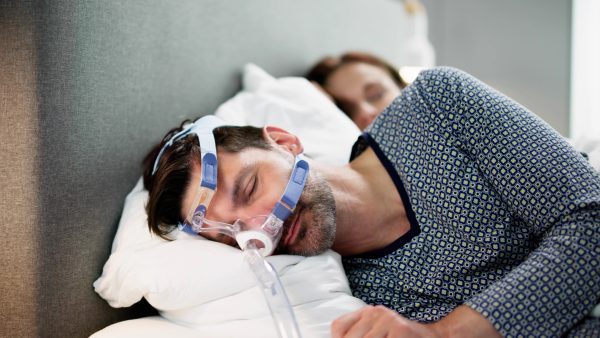Looking for Expert-Level VA Claim Answers?📱Call Us Now! 737-295-2226
Sleep disturbances are some of the most common health issues among veterans, and they can have a serious impact on your mental and physical well-being.
Whether you’re dealing with sleep apnea, insomnia, hypersomnia, or another disorder, the VA recognizes that poor sleep can make it harder to work, focus, and maintain a healthy daily routine.
This post will cover how the VA rates sleep disturbances, 6 VA-ratable sleep conditions, how to prove service connection, and how to file a VA claim.
Let’s get to it!
Summary of Key Points
- A VA rating for sleep disturbances depends on the severity of your symptoms, how they affect your daily functioning, and whether you require a breathing support device.
- Sleep issues may be rated as primary conditions (like sleep apnea) or secondary to another service-connected disability (like PTSD or depression).
- You can file a claim using VA Form 21-526EZ online, by mail, fax, or in person at a VA regional office.
Table of Contents
Sleep Disturbances in Veterans

A 2023 systematic review found that 69% of military personnel and veterans experience poor sleep quality, with higher rates in veterans (82.9%) compared to active-duty members (57.8%).
Poor sleep is particularly common among those with PTSD, depression, or older age, and can be worsened by chronic pain, traumatic brain injury, or stressful deployments, impacting daily functioning, mood, and overall health.
What is the Sleep Disturbances VA Rating?
The VA evaluates sleep disturbances based on how they impact a veteran’s social and occupational functioning.
The severity, frequency, and underlying cause of the sleep disorder all factor into the sleep disturbance VA rating.
Ratings can vary depending on whether the sleep disturbance is considered a primary condition or secondary to another service-connected disability, with documentation from medical providers playing a key role in securing an accurate VA rating.
6 Types of Sleep Disturbances
1. Sleep Apnea
Sleep apnea is one of the most common sleep disturbances among veterans and can have serious health consequences if left untreated.
The three main types of sleep apnea are:
- Obstructive sleep apnea (OSA): The most common type, caused by a physical blockage of the airway and frequently linked to PTSD.
- Central sleep apnea (CSA): Caused by the brain not sending the right signals to the muscles that control breathing.
- Complex sleep apnea (CompSA): A mix of OSA and CSA, often discovered during treatment of OSA.
The VA rates sleep apnea at 0%, 30%, 50%, or 100% under diagnostic code (DC) 6847, depending on the severity of the condition and whether breathing support, such as a CPAP machine, is needed.
-
See current Sleep Apnea VA Ratings
2. Insomnia
Insomnia refers to chronic difficulty falling or staying asleep, often linked to stress, pain, or mental health conditions like PTSD or anxiety.
The VA treats insomnia as a symptom of another mental or physical condition rather than a standalone disorder.
For example, if insomnia is a symptom of a mental health condition like PTSD or depression, it will be rated under the General Rating Formula for Mental Disorders, with potential ratings of 0%, 10%, 30%, 50%, 70%, and 100%.
Learn More: VA Disability for Insomnia
3. Narcolepsy
Narcolepsy is a chronic sleep disorder that causes sudden, uncontrollable episodes of daytime sleepiness and, in some cases, brief losses of muscle control.
Common causes of narcolepsy include:
- Low hypocretin levels
- Genetic factors
- Autoimmune reactions
- Infections like the H1N1 virus or vaccine
- Environmental triggers, such as stress or disrupted sleep patterns
The VA rates narcolepsy under DC 8108, with potential ratings of 10%, 20%, 40%, 60%, 80%, or 100%, depending on the severity and frequency of your symptoms.
Did you know? Narcolepsy is rated under the same guidelines as epilepsy, petit mal DC 8911.
4. Hypersomnia
Hypersomnia, or hypersomnolence, is a condition marked by excessive sleepiness during the day, even after a full night’s rest. You may struggle to stay awake at work, during conversations, or while driving, which can be a significant safety and quality-of-life issue.
A hypersomnia VA rating is based on the underlying condition and is assigned by analogy, reflecting the level of occupational and social impairment.
In some cases, it may also be linked to other disorders like depression or obstructive sleep apnea, allowing you to claim hypersomnia as a VA service-connected disability or as a secondary condition.
5. Sleep Paralysis
Sleep paralysis occurs when a person temporarily can’t move or speak while falling asleep or waking, sometimes with hallucinations or a sense of pressure on the chest.
You may qualify for a sleep paralysis VA rating if you have severe or frequent episodes that disrupt daily life.
Like other sleep disturbances, sleep paralysis is generally considered a symptom of another condition.
For example, it may occur as part of service-connected PTSD, anxiety, depression, or a neurological disorder, which can make it ratable under the VA rating system.
6. Parasomnia
Parasomnia refers to unusual behaviors or experiences that occur during sleep, such as sleepwalking, night terrors, or acting out dreams.
These episodes can disrupt rest, cause injury, and are often linked to underlying mental health conditions like PTSD.
Since parasomnia isn’t rated under its own diagnostic code, the parasomnia VA rating is typically determined analogously based on the condition it’s associated with, such as a mental health disorder or neurological issue.
How to Prove Service Connection
There are two main paths to proving service connection for a sleep disturbance: direct and secondary.
Direct service connection links your condition directly to military service, while secondary service connection shows that your condition was caused or worsened by another service-connected disability.
Direct Service Connection
To prove direct service connection for a sleep disturbance, you must provide evidence of the following:
- A current medical diagnosis
- An in-service event, injury, aggravation, or illness
- A medical nexus (link) between your current diagnosis and the in-service event, injury, aggravation, or illness
Secondary Service Connection
To prove secondary service connection, you’ll need:
- A current medical diagnosis of your secondary condition
- A medical nexus showing the condition was caused or aggravated by a primary service-connected disability
Pro Tip: A well-supported nexus letter from a qualified medical provider is often the most significant piece of evidence for secondary service connections.
Sleep Disturbances and VA Presumptive Conditions
Sleep disturbances aren’t typically considered a stand-alone presumptive condition by the VA.
However, they may be recognized as part of a medically unexplained chronic multi-symptom illness or a symptom of an undiagnosed illness for Gulf War and Post-9/11 veterans.
If you served in areas such as Southwest Asia, Afghanistan, Israel, Egypt, Turkey, Syria, or Jordan during the Gulf War or after 9/11 and have sleep problems that last six months or longer, the VA may treat them as part of a presumptive illness.
In other words, your sleep issues could be connected to a broader condition, like chronic fatigue syndrome, fibromyalgia, or another unexplained illness, that the VA automatically assumes is service-connected.
How to File a VA Claim for Sleep Disturbances
To be eligible for a VA rating, you must file a VA claim.
You can file a VA claim using VA Form 21-526EZ:
- By mail
- Via fax
- In person at a VA regional office
Wrap Up
Sleep disturbances can seriously affect your quality of life, and they’re more common among veterans than you might think.
Whether your condition developed during service or as a result of another disability, the VA provides compensation to eligible veterans.
If you’re struggling with chronic sleep issues due to your service, don’t wait to file a claim. Proper documentation and medical evidence can make a major difference in your sleep disturbances VA rating and overall benefits.
Want Expert-Level Support for Your VA Disability Claim? WE GOT YOUR SIX!

- VA Claims Insider is the #1 most trusted name in VA disability claims.
- Work directly with a VA claims coach who can educate you through the claims process.
- 25,000+ disabled veterans have served in our membership programs since 2016.
- 30% average rating increase for veterans who complete our #1-rated Elite program.
(FAQs) Frequently Asked Questions
What is the VA rating for sleep disturbances?
The VA rating for sleep disturbances is determined by how much your symptoms interfere with your ability to work and function in daily life, as well as the underlying cause diagnosed by a medical professional. Ratings by analogy are usually assigned under related conditions, such as mental health disorders, sleep apnea, or other service-connected illnesses.
How is a hypersomnia and OSA VA rating determined by the VA?
The VA determines a hypersomnia and OSA VA rating by evaluating the severity of your symptoms, the degree of daytime sleepiness, the use of devices such as a CPAP machine, and how these factors limit your daily functioning and health.
What is the chronic sleep impairment VA rating?
A chronic sleep impairment VA rating depends on how much your sleep problems affect your ability to work or function daily. It can also depend on whether you require breathing support, like a CPAP machine.
What sleep disorders qualify for disability ratings?
Several sleep disorders may be eligible for disability ratings, including sleep apnea, insomnia, narcolepsy, hypersomnia, sleep paralysis, and parasomnia. You may qualify for a sleep disorder VA rating if you have a current diagnosis, proof of an in-service event, injury, or aggravation, and a medical nexus linking your diagnosis to that in-service occurrence.
What is the hypersomnolence VA rating?
There is no specific hypersomnolence VA rating; however, the VA may recognize it as service-connected when it occurs secondary to medication use or an underlying medical or psychiatric condition.
Can sleep disturbances be secondary to PTSD or depression?
Yes. Many veterans experience insomnia or nightmares as symptoms of PTSD, depression, or anxiety. In those cases, the VA includes sleep problems as part of your mental health disability rating.
Content Reviewed By

Quality Assurance Team
The Quality Assurance (QA) team at VA Claims Insider has extensive experience researching, fact-checking, and ensuring accuracy in all produced content. The QA team consists of individuals with specialized knowledge in the VA disability claims adjudication processes, laws and regulations, and they understand the needs of our target audience. Any changes or suggestions the QA team makes are thoroughly reviewed and incorporated into the content by our writers and creators.
About the Author

Kelly Olone
Kelly Olone is a military spouse who earned her degree in Psychology from Florida International University. After working in the non-profit sector for several years, she turned to her passion for writing. She aims to contribute to a better understanding of the valuable benefits that veterans deserve. As a mom, Kelly navigates the delicate balance between deadlines and bedtime stories with finesse.



